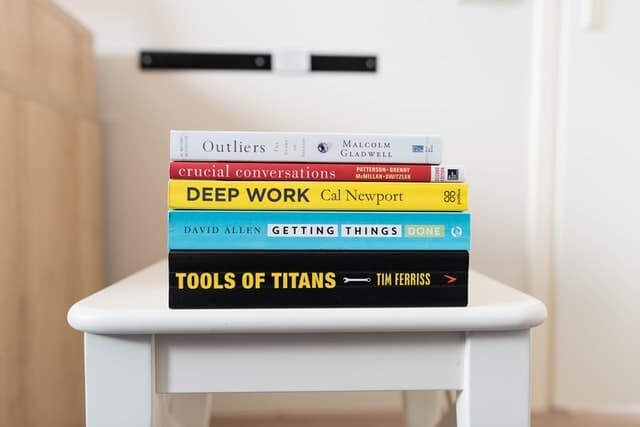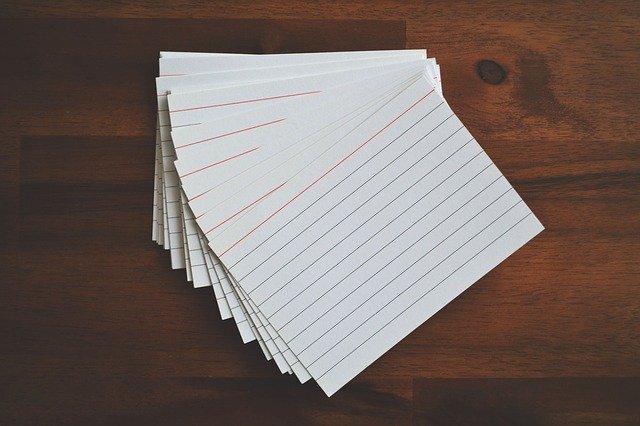This is a guest post by Luc P. Beaudoin, an adjunct professor of Cognitive Science and Education at Simon Fraser University. A
PDFpen user, Luc is the creator of productivity apps
Hook and
mySleepButton. He is also director of CogSci Apps Corp and owner of CogZest.
Whereas we tend to read fiction for entertainment, we read non-fiction to be informed. If the information is helpful, we want to be able to remember and use it later. Unfortunately, the human mind is not as malleable as we sometimes assume it is. Even delving
information — i.e., carefully reading, watching, and listening — is insufficient for it to stick.
Good students know that in order to be transformed by information, they need not only to read it but to practice using it. And so they explain the information to themselves and others, they write about it, they work through examples, and they practice answering questions about the material. They detect the gaps in their understanding and focus their practicing on them. Similarly, no one can become a successful chess player, musician, athlete, or doctor just by reading.
Popular books such as Malcolm Gladwell’s "Outliers" and Daniel Code’s "Talent Code" have disseminated the 10,000-hour rule according to which approximately that many hours are necessary and sufficient to develop expertise in a domain. The rule is not a universal law. It does not negate the influence of talent. But expertise in complex disciplines does require extensive practice. The better the practice, the better the learning.
Yet, after students graduate they typically stop using flashcard software. Similarly, public performance experts tend not to practice systematically in other areas of their lives. They will read a book but not create practice challenges for it. As a result, they learn a lot less than they might.
Why is this? It’s not necessarily that they lose their appetite for excellence.
Why we fail to practice

The problem is partly cultural. The most popular books on practice focus on expertise and formal education. Expertise, however, is a narrow concept. It mostly concerns public performance disciplines such as chess, music, sports, and observable medical practice, where performance can easily be observed and measured.
With their focus on public performance, these books fail to explain that in order to learn — in a deep and lasting way — from text, video, and presentations, we should practice answering questions about the material.
There are other reasons why we fail to practice systematically with important information. Cognitive psychology has uncovered a rather insidious problem. When we read information fluently with a reasonable level of comprehension, we tend to assume that we will be able to remember and use the information later. This, however, is an illusion.
Choose a few random books or PDFs that you read three to 24 months ago. If you’re a student, choose material that you read for your own sake, not for exams. Ask a friend to test you on the material. Try with a few more articles. Now ask yourself: How often did you use that information in situations when it would have been helpful to do so? You might be surprised at how difficult it is to remember what you’ve read and how infrequently you applied helpful information. In other words: how little you’ve actually learned.
If you ask knowledge workers what software they use for writing an email, browsing the web, listening to music, or reading a book, they will easily answer. Yet if you ask them what software they use for learning and practicing arbitrary knowledge that they obtain from books, articles, videos, or conferences, most of them will be confused. They probably don’t use any such software or realize they need it. The PDF readers, ebook readers, and web browsers we use are typically not designed for delving. And these apps do not tend to include modules for practicing productively. So, again, it’s not surprising that people don’t practice the information they “consume,” or engage in productive practice.
Productive practice

Productive practice involves deliberately practicing with objective knowledge using information technology with a view to becoming a more effective autonomous user of that knowledge. In other words, the goal of productive practice is not merely to remember
key information, but to detect when that information is applicable and then to use it. Psychologists refer to this as transfer of learning
— the “holy grail” of memory, formal education, and self-directed learning.
Productive practice is geared towards efficiency and effectiveness. Practice needs to be efficient
because people are extremely pressed for time. It also needs to be effective
, leading to the desired outcomes. Finally, it needs to transform the individual by producing what psychologists David Perkins and Keith Stanovich call “mindware”. Mindware is to “mind” what software is to computers.
Given the amount of information people process these days, productive practice is only feasible with the use of information technology. But learners need guidance for selecting and practicing with software. They need a productive practice framework.
A productive practice framework must draw on integrative cognitive science, including the literature on test-enhanced learning, deliberate practice, expertise, testing effects, and memory. This literature shows that forming and answering the right questions over time can instill memory and help develop skills.
However, given that the goal of productive practice is not merely to develop skills and memories, but to transform the individual, the framework also needs to consider research on motivation, attitudes, emotions, and executive functions.
A notable fact about education and expertise is that having a great teacher and coach tends to be extremely beneficial. The lower the number of students per teacher, the better the students learn. Great trainers get to know their trainees. They design and adapt training regimens to them. Trainees do not merely answer questions (as in typical flashcards); they address challenges
. The famous basketball coach John Wooden didn’t start out with the best basketball players. But through his coaching, he systematically produced champion teams. His success had a lot to do with the time he and his assistant coaches spent planning practices.
We cannot all afford coaches. But by training systematically and reflectively, we can learn to better coach ourselves. That means spending time every week designing challenges to address. And spending time every day practicing those challenges. Fortunately, well-designed training software can provide some of the benefits of a coach.
Productive practice software

Here’s the catch. No software on the market was explicitly designed for productive practice. But some flashcard software can be adapted to meet these objectives, as I describe in my cognitive productivity books, provided they meet most of the requirements below:
- Auto-generation of cards from notes
- Configurable templates so that you can create new fields and define the mapping between note fields and cards
- Support for embedding media (images, multimedia)
- Ability to aggregate the same content into different study collections
- The capacity to handle as much content as you wish to put into it
- An adaptive spaced learning algorithm, so that the timing of the challenge anticipates your forgetting
- Integration options so that you can use others' plugins and scripts, and include your own
- Ability to export your content along with learning statistics, in case the developer ends the project
- Availability on or from multiple platforms (iOS, iPadOS and macOS),
- Synchronization between devices via a USB cable, wifi, or iCloud, for security and privacy.
- Conversion of flashcards to audio
- Text-to-speech and
voice command, to enable you to answer questions without having to look at the screen via Siri or with Apple EarPod buttons.
The previous bullet point is so that you can answer questions while you are mobile, without adding to your screen time. It speaks to the efficiency aspect of productivity (and may foster creativity).
The two software products on the market that come closest to meeting those requirements are Anki and RemNote. RemNote is a relatively recent product, whereas Anki has been around for over a decade.
Practicing productively with Anki is described in detail in my two cognitive productivity books. The same principles described in those books can be used for practicing with RemNote.
The importance of links
Content for notes and flashcards should typically come from high-quality sources, such as academic PDFs. When you develop your notes and flashcards, it’s very important to link the flashcards to their sources. While practicing, you will often want to revisit the reference material to fine-tune the challenges, add new challenges, and update your understanding.
With the Hook productivity app and PDFPenPro, you can easily obtain a hyperlink to your PDFs, which you paste in your Anki or RemNote objects. With the click of a link, you can get back to the original PDF. You can even bidirectionally hook your RemNote data to your PDFs. Even if you move the PDFs around on your Mac, the links will still work.
How to make time for practicing

Suppose you agree with me that practicing can help you make you much more competent. You might, nevertheless, say to yourself: “I just don’t have time to practice”. Or you might take it up for a while but then give up due to the time and effort required. Practicing in this respect is not much different from exercising. As such, you would need to:
- Make it a priority
- Make it convenient and comfortable
- Develop a routine
- Make it social (for example, commit to a partner and share your stats)
And of course, you have to decide how much time you will ultimately spend. Even 20 minutes a day is better than nothing.
Since your schedule is probably already “full”, you’d have to cut other activities out — preferably other screen time. Most people who value competence spend a lot of time processing information (reading, listening to podcasts, watching videos, even engaging with social media). In that case, it may be reasonable to reduce the time you spend taking in new
information and apply that time to mastering previously processed information. What’s the point of spending 15 hours “consuming” information if you’re only going to remember a very small and random amount of information?
Benefits of productive practice
One of the major benefits of productive practice is that it can make you evaluate information more carefully. Productive practice teaches you to focus on knowledge gems
: useful, potent,
high-caliber information that can transform you. Mastering a few knowledge gems is much more useful (and pleasant) than forgetting reams of information.
Practicing productively also improves your judgments of learning.
By asking yourself questions about material you have read, you’ll develop a keener sense of the transience of memory. You’ll be surprised that memory fades even with practice. You’ll learn how to formulate better challenges, making you a better learner. And you will gain control over your learning.
You might also find that you have many spare moments for practicing. Even with COVID, many people take public transit, which may be a great opportunity to practice. If you now work from home, then consider using the time you’ve saved by not having to commute as an opportunity to practice. If it is safe,
you might be able to practice while walking, waiting in lines, exercising with fitness equipment, eating meals, before going to bed, or even going to the washroom.
By practicing, you’ll experience the pleasure of increased competence.
Interested in using PDFpen for learning? We offer discounts for students, faculty, and staff at educational institutions. Check out our store.
